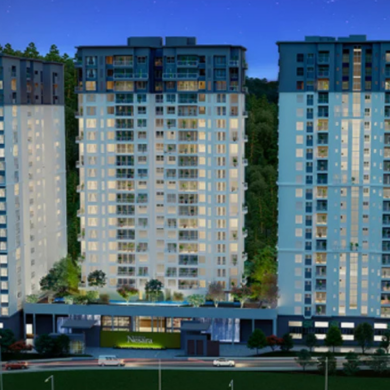
Supreme Court judgement on car parking in flats ensures transparent and fair allocation, safeguarding homeowners’ rights in India. It prohibits selling open and stilt parking spaces separately, emphasising compliance with RERA and car parking rules in flats.
Car parking disputes are a common concern in residential societies, leading to conflicts between homebuyers and developers, or between homebuyers themselves. These issues arise from unclear guidelines, unauthorised allotments, or miscommunication about designated parking spaces.
Understanding the Supreme Court judgement on car parking in flats can safeguard your rights as a homeowner. By staying informed, you can avoid disputes and ensure a hassle-free parking experience in your residential community.
Table of Contents
Importance of Supreme Court Rulings in Resolving Such Disputes
SC rulings play a vital role in resolving car parking disputes in residential societies. These judgements provide clear legal guidelines, ensuring transparency and fairness in parking allocation.
- Legal Clarity and Enforcement: SC rulings provide definitive legal interpretations, ensuring that parking rules are uniformly followed
- Protection of Homeowners’ Rights: These judgements safeguard your rights against arbitrary parking allocations or unauthorised usage
- Transparency in Builder-buyer Agreements: Developers are held accountable, ensuring clear communication about parking space provisions
- Prevention of Future Disputes: By setting legal precedents, these rulings help avoid conflicts among residents, and with developers
- Fair Allocation of Parking Spaces: The guidelines ensure equitable distribution of parking, enhancing harmony in residential societies
Legal Background of Car Parking Rules in Flats
Car parking regulations in India are designed to ensure fair allocation and efficient use of parking spaces in residential societies. By understanding these laws, you can protect your rights as a homeowner and avoid parking disputes.
Overview of Car Parking Laws in India
Car parking laws are guided by the National Building Code, model building bylaws from the Ministry of Housing and Urban Affairs (MoHUA), and state-specific apartment parking laws in India. These mandate minimum parking space requirements and usage guidelines, to ensure uniformity across residential areas.
For example, the National Building Code specifies that parking space for a 4-wheeler must be at least 13.75 square metres, while for 2-wheelers, it must be at least 1.25 square metres. MoHUA recommends 2 equivalent car spaces (ECS) per 100 square metres of floor area, ensuring adequate parking for all residents.
Additionally, apartment parking laws in India – especially in states such as Maharashtra and Delhi – allow housing societies to set their own parking rules through their managing committees. This empowers Resident Welfare Associations (RWAs) to maintain harmony and transparency in the community, by enforcing customised parking regulations.
Key Provisions under Real Estate (Regulation and Development) Act
RERA car parking guidelines play a significant role in regulating allocation in residential complexes, to protect homebuyers’ interests. Key provisions under RERA include:
- Minimum Parking Space Requirement: It ensures sufficient parking facilities for all residents, enhancing convenience and preventing disputes
- Carpet Area Consideration: The parking space requirement is usually linked to the carpet area of the apartment, ensuring proportional allocation according to the size of the dwelling unit
- Separate Allotment and Charges: RERA requires developers to provide separate parking allotment agreement, clearly specifying the number and location of parking spaces and the associated charges.
- No Unilateral Changes: Developers are prohibited from making unilateral changes to parking allotment, without the homebuyers’ consent. This ensures that the parking spaces allocated during the booking or agreement stage remain unchanged, providing reliability and stability to buyers.
- Prohibition on Selling Parking Spaces: RERA car parking guidelines prohibit developers from selling stilt (covered) or open parking spaces as separate units, since they are considered common facilities
Role of Apartment Owners’ Associations and Developers
These key stakeholders play important roles in managing and enforcing parking regulations in residential societies:
- Developers’ Responsibility: Developers are required to provide clear agreements detailing parking allotments, and ensure compliance with RERA regulations. They must also allocate parking spaces transparently, avoiding any unauthorised changes or additional charges.
- Resident Welfare Associations: Formed within 90 days of booking of most flats, RWAs are responsible for enforcing parking rules and maintaining transparency in allocation. As registered entities of apartment parking laws in India such as Societies Registration Act 1960, RWAs handle disputes and grievances related to parking and other community issues.
Supreme Court Judgement on Car Parking
India’s apex court has made important rulings regarding car parking rules in flats, impacting how these spaces are managed and allocated. These judgments are important for understanding your rights as a homeowner or prospective buyer in India.
- Parking Spaces as Common Areas: SC has consistently held that open & stilt parking are considered common areas, and cannot be sold separately by developers. This stance was reaffirmed in the landmark case of Nahalchand Laloochand Pvt. Ltd. vs. Panchali Cooperative Housing Society. The topmost court ruled that such spaces must be available for the common use of residents without extra charges, and their cost should be included in the flat’s price.
- Prohibition on Separate Sale: Developers are not entitled to sell parking spaces as independent units. This means that any attempt to charge extra for parking spaces beyond what is included in the property’s sale price is considered unfair and illegal.
- RERA and Parking: RERA car parking guidelines support this stance, by defining parking spaces as part of the common areas. However, it allows the sale of covered garage spaces separately, even as open or stilt parking remains non-transferable.
How this Judgement Impacts Flat Owners
Supreme Court judgement on car parking in residential complexes significantly impacts homeowners, by clearly defining their rights and preventing unfair practices. By understanding this ruling, you can safeguard your rights and take informed decisions while purchasing a property
-
Rights of Residents Regarding Parking Spaces
The Hon’ble Court has ruled that open and stilt parking spaces are considered common areas and cannot be sold separately by developers. This means you have the right to use these parking spaces without paying extra charges, as the cost is already included in the price of the flat. This judgement ensures transparency and protects you from unfair pricing practices.
-
Can Developers Sell Open or Stilt Parking Separately?
No, developers are not allowed to sell open or stilt parking spaces as independent units. Supreme Court judgement on car parking prohibits charging extra for these spaces beyond the sale price of the property. However, covered garage spaces can be sold separately, as they are considered private property.
-
Role of RWAs in Parking Management
They are responsible for ensuring fair and transparent allocation of parking slots among residents, as per the apartment parking laws in India – for maintaining harmony in the gated community. They also enforce rules based on the SC judgement, preventing unauthorised sale or misuse of parking spaces. This provides a structured and equitable system for all residents.
How to Resolve Car Parking Disputes
By understanding these legal and alternative methods, you can effectively navigate car parking issues, and ensure that your rights as a homeowner are protected.
Steps for Legal Recourse
If you find yourself in a parking dispute that cannot be resolved amicably, legal action may be necessary. Here are the steps you can take:
- Document the Dispute: Gather evidence of the dispute, including photos, videos, and witness statements, as this documentation will be essential in building your case
- File a Complaint: Depending on the nature of the dispute, approach authorities such as municipal corporation or police. For instance, if the issue involves unauthorised parking on public property, you can report it to the traffic authorities.
- Civil Courts: If the dispute is severe or involves property rights, file a case in the Civil Court – which may involve seeking an injunction or damages
- Consumer Forums: If the dispute involves a developer, you can approach consumer forums that are equipped to handle disputes related to real estate services
Alternative Dispute Resolution Methods
Before resorting to legal action, consider these alternative methods to resolve disputes amicably:
- Mediation: Engage in mediation with the other party to find a mutually acceptable solution – saving time and reducing tension in the community
- Society Intervention: If you live in a gated community, report the issue to your RWA or housing society, as they can help mediate the dispute and enforce community rules
Role of RERA in Resolving Complaints
RERA Authority plays a significant role in resolving parking-related disputes, especially those involving developers:
- Complaint Filing: If a developer has sold parking spaces illegally, you can file a complaint with the RERA authority. Ensure you have evidence to support your claim, such as project documents and sale agreements.
- Investigation and Resolution: RERA will investigate your complaint and may direct the developer to refund the amount paid for the parking space, along with interest and compensation for any inconvenience caused
- Consumer Protection: RERA’s involvement ensures that developers adhere to regulations, protecting you against unfair practices related to sale of parking spaces
Key Takeaways for Homebuyers and Residents
- Know Your Rights: Open and stilt parking spaces are common areas and cannot be sold separately by developers; as the cost is included in the property price
- RERA Compliance: The authority prohibits separate sale of open and stilt parking, but allows covered garages to be sold independently
- Transparency and Fairness: Supreme Court judgement on car parking ensures transparent allocation, protecting you from hidden costs and unfair practices
- Role of RWAs: These manage parking allocations and resolve disputes, maintaining harmony in the community
- Compliance with Laws: Familiarise yourself with apartment parking laws in India and actively participate in meetings to stay informed about parking policies
Conclusion
SC rulings on apartment parking laws in India provide clear guidelines on the allocation and sale of parking spaces, safeguarding homeowners’ rights and promoting transparency. By understanding these rulings, you can take informed decisions and avoid disputes in your residential society.
The judgement emphasises that open and stilt parking are common areas, preventing developers from selling them separately. It also requires developers to include the cost of the parking space in the apartment price. By staying informed and compliant with RERA regulations and car parking rules in flats, you can ensure a fair and harmonious experience.
FAQs
1. What was the Supreme Court’s ruling on car parking rules in flats?
Supreme Court’s ruling on car parking rules in flats states that open and stilt parking spaces are common areas and cannot be sold separately by developers.
2. Can a developer sell open parking spaces separately?
No, a developer cannot sell open parking spaces separately, as they are considered common areas under RERA car parking guidelines and SC rulings.
3. What is the difference between stilt parking and open parking?
The difference between stilt parking and open parking is that stilt parking is covered on the ground level supported by stilts, while open parking is uncovered in the common area.
4. Are parking spaces included in the sale of a flat as per RERA?
Yes, parking spaces are included in the sale of a flat as per RERA, if they are open or stilt parking – but covered garages can be sold separately.
5. Can Resident Welfare Association (RWA) allocate parking spaces?
Yes, Resident Welfare Association (RWA) can allocate parking spaces to ensure fair and transparent distribution among residents, in line with legal guidelines.
6. What should homebuyers check regarding car parking before purchasing a flat?
Before purchasing a flat, homebuyers should check the parking allotment agreement, ensuring compliance with RERA car parking guidelines and confirming inclusion in the flat’s sale price.
7. How can a resident dispute unfair parking allocation?
A resident can dispute unfair parking allocations, by filing a complaint with the RWA or escalating the matter to RERA Authority, consumer forums, or Civil Courts.
8. Is basement parking considered a common area?
Yes, basement parking is considered a common area and cannot be sold separately, ensuring shared usage among all residents.
9. Can a developer charge extra for covered parking?
Even if a developer charges extra for covered parking – as it protects vehicles from heat, dust, rain, and direct sunlight – the cost of this parking space needs to be included in the apartment price.
10. What legal steps can be taken in case of parking dispute with the developer?
In case of parking dispute with the developer, legal steps include filing a complaint with RERA Authority, approaching consumer forums, or taking legal action in Civil Court.









